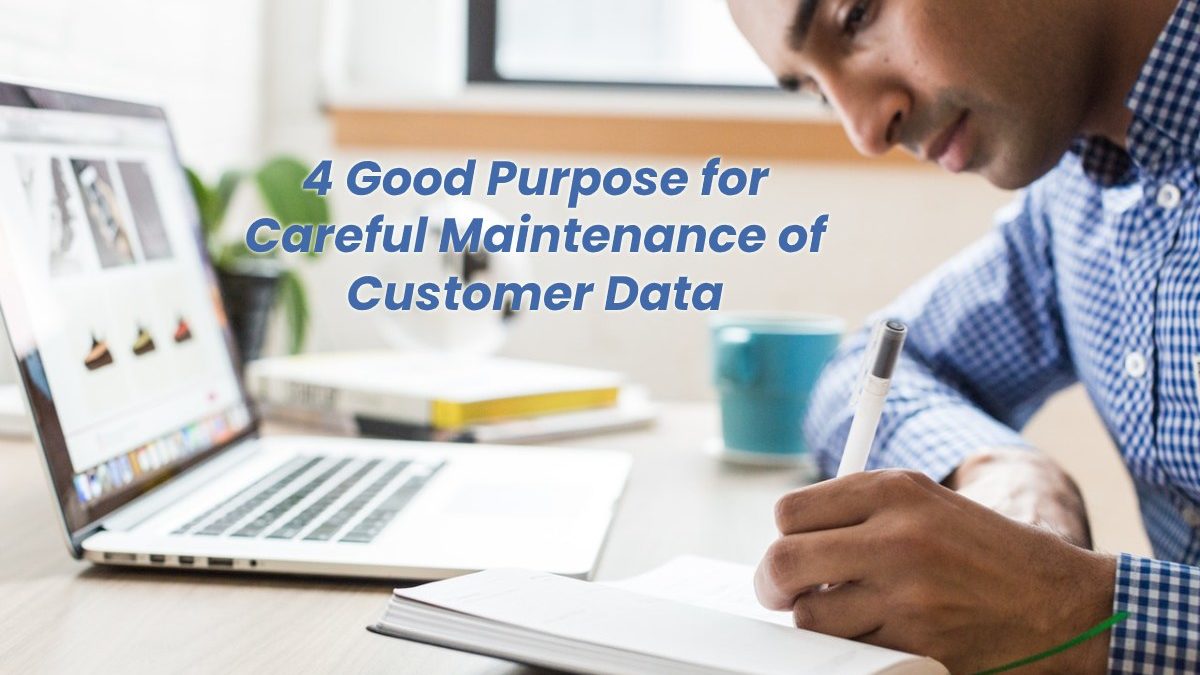They have never been as valuable as they are today: customer data. In a customer-centric business world, they are the be-all and end-all for sales success. It is all the more important that all information about the customer is always up-to-date and available at the push of a button.
Table of Contents
Control Customer Relationships Efficiently
One of the most significant competitive advantages of small and medium-sized enterprises (SMEs) is personal proximity. It is a central part of their corporate DNA. As a rule, sales employees are on excellent terms with their customers. Accordingly, they can also easily assess their wishes and needs.
Nevertheless, it is also worthwhile for SMEs to manage their marketing and sales data professionally. This is the only way to manage customer relationships and exploit potential business opportunities efficiently. However, many SMEs are currently working with outdated customer data and manual techniques.
According to a study, around a quarter of companies (23 percent), incorrect contact information slows down sales and marketing. Therefore, 17 percent each find it difficult to pass marketing materials on to the customer and to act efficiently with the customer. 12 percent say they sometimes lose sight of leads and incoming payments.

Data Management Challenges
Therefore, SMEs should get their sales and marketing data in order. Professional data management creates the basis for this. Integrated software solutions help SMEs to master the following challenges:
1. Consolidate Data
In order to really understand customers, it takes much more than classic basic data on sales, a number of employees, and industry. Instead, unstructured data from external sources now also play an essential role in customer service. If you want to inspire your customers, you have to combine various information from different media, contact points, and channels.
EDI Integration software makes this task easier.. This means that heterogeneous data can be efficiently merged and new knowledge gained for tailor-made customer service.
2. Comply with Data Protection Laws
Since May 2018, the General Data Protection Regulation (GDPR) has regulated the handling of personal data in sales and marketing. Among other things, it obliges companies to delete complete data histories if the customer so wishes. For SMEs in particular, this harbors significant challenges and compliance risks. Because these often save relevant information in different places. If, on the other hand, all customer information comes together in an integrated system, legal requirements can be complied with without any problems.
3. Address Customers as Needed
In times of increasing digitalization, customers make their purchase decisions in a variety of ways. It is all the more important that companies can place appropriate signposts at relevant contact points on the customer journey and can anticipate which path the respective customer will take: While one prefers classic tools such as phone calls or emails, the other may react more to a direct approach via LinkedIn. Therefore, this information should be carefully maintained in the company records. Also, because they provide an essential basis for marketing automation. Customer data is also used for guided selling tools, which are becoming increasingly popular due to their ability to improve the buying process.
4. Design Efficient Marketing Processes
Current and well-structured customer data also form the basis for automated marketing processes. More and more companies rely on it. According to the study “Digital Safety First Marketing Automation in DACH 2019,” the number of companies that still rely on manual marketing processes has now fallen below 30 percent. No wonder! Finally, extensive efficiency reserves can be raised through digitization. An indispensable prerequisite for this: a consistent database.
Also Read: How AI Boosts your Company’s Productivity?

